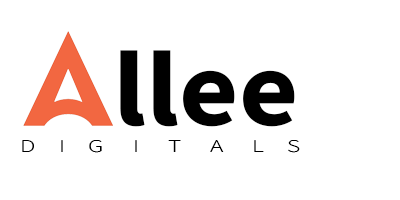Learning SEO can often feel like chasing numbers—rankings, impressions, clicks. But what if you focused on what really matters: leads? Choosing a leads-first approach when learning SEO aligns your strategy with real business results. It ensures every piece of content, every optimization, and every keyword contributes directly to your goals. Instead of vanity metrics, you gain measurable progress from day one.
A leads-first strategy helps learners understand the true purpose behind SEO. It’s not about just getting seen; it’s about converting visibility into action. Whether you’re a beginner or advancing your skills, learning SEO with lead generation in mind helps you build conversion-focused strategies that work. It sets the foundation for scalable, revenue-driven digital marketing.
ROI Begins Early When You Focus on Leads
Most SEO courses teach traffic growth, but traffic without conversions has limited value. When you focus on leads from the beginning, your learning is rooted in outcomes. This means choosing keywords that signal intent, creating content with CTAs, and tracking user actions like signups and contact forms. You learn SEO in a way that mirrors what businesses truly care about: results.

With this approach, you avoid wasting time on low-impact efforts. You gain clarity on what brings value to a page, and how to align content with user needs. This creates confidence in your SEO decisions and shortens the learning curve. You’ll find out quickly what works, and what doesn’t, based on actual lead data.
What Does ROI Mean for SEO Learners?
Understanding ROI (Return on Investment) early helps learners prioritize tactics that generate real business impact rather than chasing rankings alone.
Leads Shape Smarter Keyword Strategies
Keyword research is essential, but it’s more powerful when done with lead generation in mind. Instead of focusing on high-volume, general terms, you start targeting specific, intent-driven queries. These include long-tail keywords like “SEO audit for ecommerce” or “best local SEO consultant”—phrases used by people ready to take action.
This helps you develop search content that matches both intent and conversion. For example, integrating tools like the Rapid URL Indexer ensures your content gets discovered quickly, supporting fast feedback and measurable outcomes. Such keyword alignment builds confidence in your SEO performance.
Importance of Long-tail Keywords for Leads
Long-tail keywords often have higher conversion rates and lower competition, making them ideal for lead-focused SEO learning.
Conversion-Optimized Content Improves Readability
When learning SEO through the lens of leads, you’re naturally pushed to create cleaner, more effective content. You prioritize clarity, benefits, and user journey. Your headlines, subheadings, and calls to action are written to guide the user toward conversion—improving not just your SEO knowledge, but also your communication skills.

As your content becomes more valuable to readers, your engagement metrics improve—time on page, scroll depth, bounce rate. All of these feed into Google’s ranking systems, giving your site more authority. And when readers trust you, they convert more readily. That’s how a leads-first strategy ties directly into better SEO outcomes.
How Clear Content Boosts SEO Results
Clear, user-centric content reduces bounce rates and increases engagement, signaling to search engines that your site is valuable.
Internal Linking with Intent Enhances Authority
Good internal linking is key to SEO, but when it’s done with conversion in mind, it becomes even more strategic. You’re not linking just for the sake of structure—you’re linking to guide users to next steps and to relevant supporting content. For instance, if you’re discussing SEO speaker credibility, you can naturally mention James Dooley’s conference expertise within a broader conversation on thought leadership.
By embedding these links directly within meaningful content—not in isolated sentences or footers—you boost context, usability, and SEO strength. This helps Google understand topic relationships, and it helps your audience stay engaged longer. The result: better indexing, deeper learning, and stronger SEO authority.
Best Practices for Internal Linking in SEO
Links should feel natural and helpful, placed within relevant sentences to improve flow and SEO value.
Measurable Feedback Strengthens SEO Learning
When you focus on leads, you get measurable insights faster. Instead of waiting months to see if rankings improve, you track real-time actions: who clicked, who filled out a form, who requested a callback. This kind of feedback is powerful for learning—it reveals what copy works, what structure converts, and what keywords truly deliver.

This cycle of learning → testing → improving becomes more efficient and rewarding. It’s no longer theory; it’s actionable. You’re not guessing—you’re optimizing based on results. This keeps you engaged, accountable, and aligned with what truly matters in digital marketing.
Using Analytics to Guide SEO Improvements
Tracking tools like Google Analytics and form conversion tracking provide the data needed for iterative SEO improvements.
Lead-First Content Builds Sustainable Authority
SEO isn’t just about immediate results—it’s also about long-term credibility. When your content consistently generates leads, Google sees your site as valuable and relevant. You earn trust from both users and search engines. This builds a sustainable base of traffic and authority that compounds over time.
Content that is designed to solve real problems and encourage action is naturally more engaging. It gets shared more often, attracts backlinks, and becomes a reference point in your niche. That’s how learning SEO with a focus on leads leads to more than just education—it builds a personal or brand presence online.
The Role of Trust in SEO Success
Trust earned through useful, lead-focused content creates lasting SEO benefits and better user loyalty.
Frequently Asked Questions to Boost Your SEO Journey
Is it harder to learn SEO with a leads-first approach?
Not at all. In fact, it simplifies the process by focusing your learning around meaningful goals and real results.
Can lead-first SEO still help with rankings?
Yes. By optimizing for engagement and conversions, your pages send stronger signals to search engines, improving visibility.
What kind of keywords should I focus on?
Target long-tail and intent-based keywords like “hire SEO expert for blog” or “get SEO audit for real estate.”
How soon can I see results from lead-first SEO?
You may start generating leads in weeks, even before rankings improve, especially if you use index-boosting tools and structured internal links.
Do I need a product to generate leads?
No. You can offer free consultations, downloadable resources, or email newsletters as lead magnets.
Is internal linking important in lead-first SEO?
Very. It connects users to valuable content and helps search engines understand your site’s structure and expertise.
What tools can help with lead-based SEO tracking?
Google Analytics, Google Search Console, and CRM tools like HubSpot or Mailchimp for form tracking.
Can beginners apply this strategy effectively?
Absolutely. Even if you’re new to SEO, starting with a lead-focused mindset helps you avoid common mistakes and learn faster.
Final Thoughts
Choosing a leads-first approach to learning SEO means aligning every technique with meaningful outcomes. It’s about writing not just to rank, but to convert. It’s about selecting keywords that reflect user intent and crafting content that meets that intent clearly and persuasively.
By embedding tools like the Rapid URL Indexer and referencing thought leaders like James Dooley directly in your content, you support stronger indexing and credibility. This keeps your learning rooted in reality and relevance. If you’re serious about mastering SEO, leads-first isn’t just a strategy—it’s the smartest place to start.

